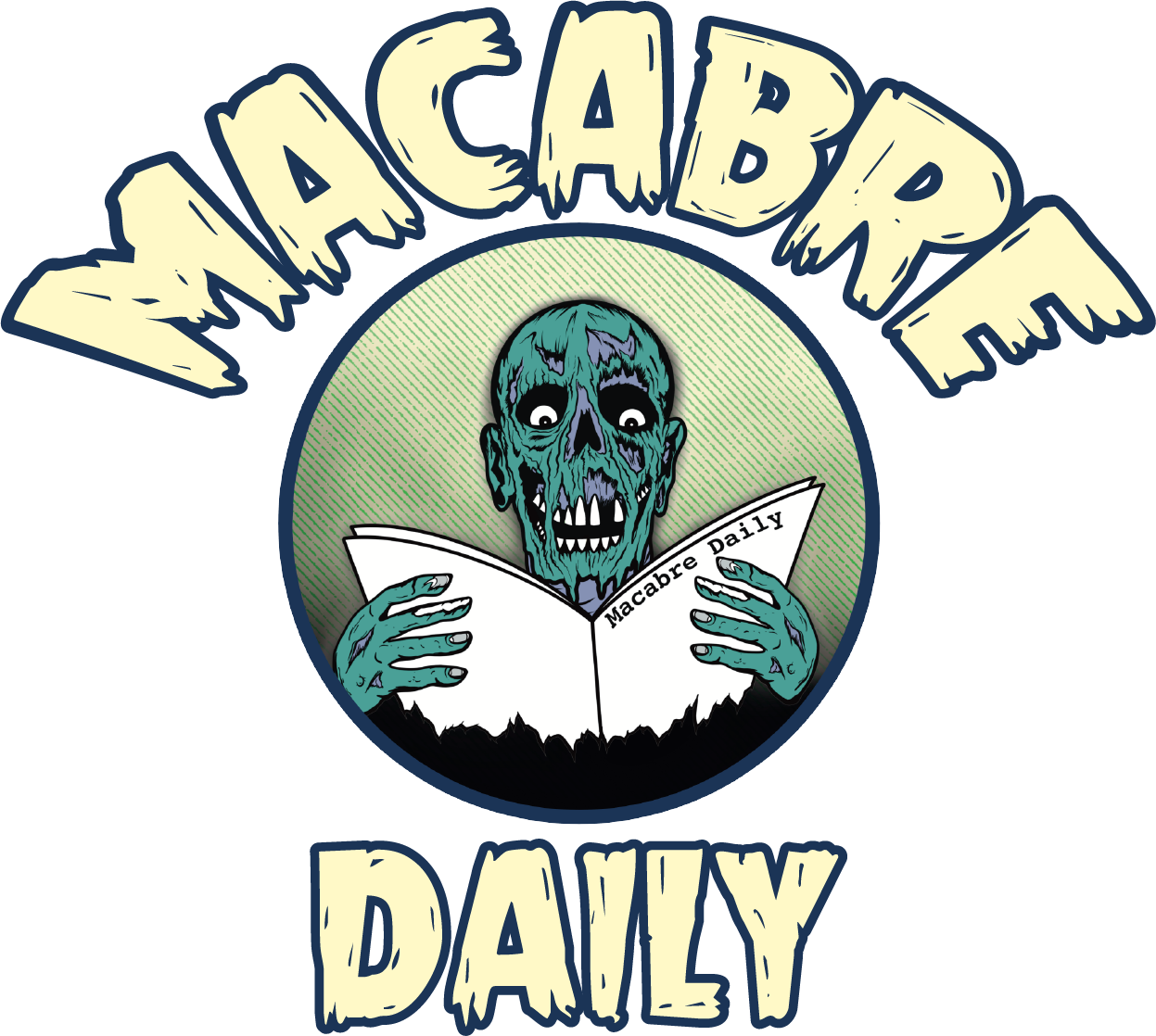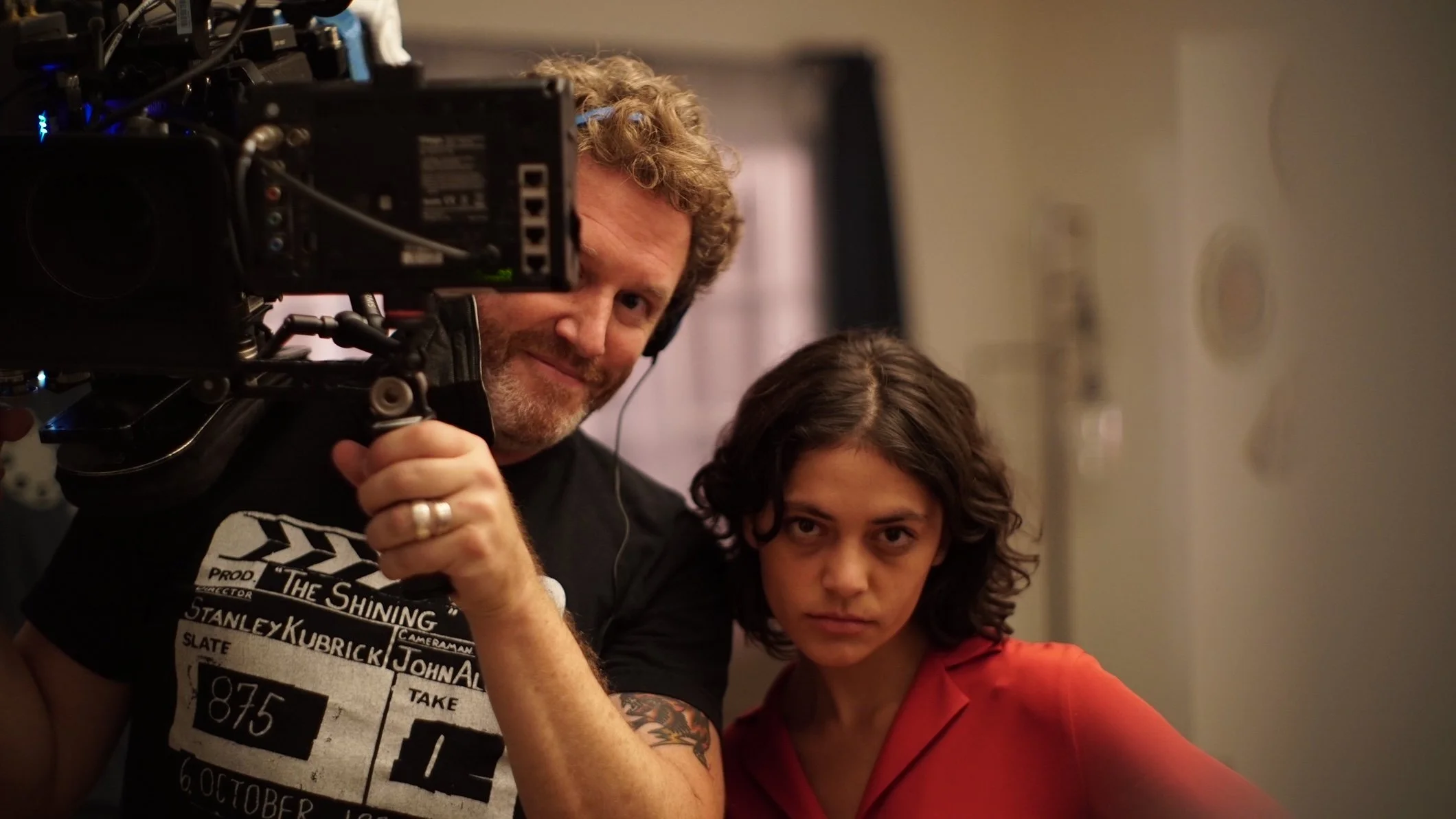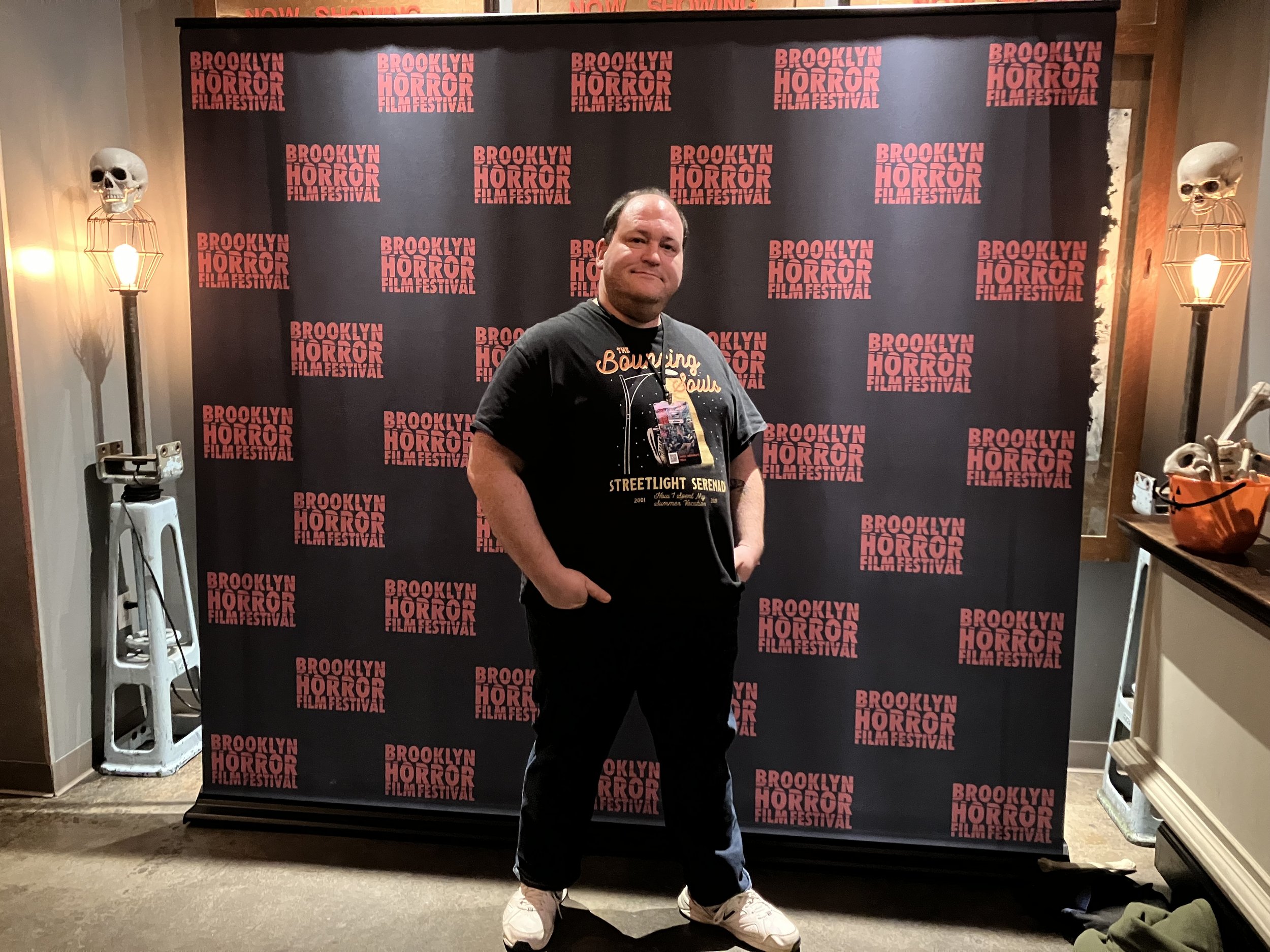FANTASIA FEST- Director/Writer/Podcaster Elric Kane talks to Macabre Daily about his new film, "The Dead Thing!"
The vibe is strong with this one. (Image: Yellow Veil Pictures)
How many struggling artists come to Los Angeles to try and make it big, only to wind up working in a coffee shop? Way too many to count. Elric Kane, podcast host extraordinaire, cracked the code and is now premiering his first film at this year’s Fantasia Film Festival.
After arriving in California from his native New Zealand, Kane made several short films and opened Jumpcut Café, a celebrated indie horror hangout where directors held court and screened their classic films. He’s gone on to co-host the “Colors of the Dark” and “Pure Cinema” podcasts, both institutions at this point. This year, he brings us his first feature. From Yellow Veil Pictures, “The Dead Thing” is about a woman searching for the one-night stand that made her feel alive, and the terrible secret she uncovers. Kane took a break from making the rounds at Fantasia to talk about the experience of shooting the film, and what he and others can learn about making a debut film. Some technical difficulties cut off the first minute of our conversation, but that didn’t stop us from getting into it.
Lowell Greenblatt: You’ve been talking about film on podcasts for years. How did you deal with the hands-on challenges of your first feature?
Elric Kane: There’s not much time to focus on them, especially on an indie film. Except when you go to bed or when you wake up [Laughs]. Also, people are relying on you. I’m coming to this a little older to make a [first] feature, and I teach film, too. So that gives you some inner confidence that you can put shots together. That part, I’m confident about. Now I’m at the part where I pass it along to the rest of the world, which you can’t ever predict. I have no clue how someone will perceive it [Laughs].
It’s a hard thing because you never know if you’ll get another chance to direct a movie again. As cliché as it sounds, if you try to just be true to the story on paper and not make EVERY movie, you should be able to get there with some restraint.
LG: What’s harder, making a film or managing a café?
EK: Both are financial disasters [Laughs]. But even my failures have been good failures. Amazing relationships have come from them and lead me to the next thing. On paper, the café was a failure financially for me, but I met all these amazing people. John Carpenter and Larry Cohen did shows there. There’s a lot of parallels to making independent films, because the film might not make its money, but it takes you to whatever the next film is. I’d say making a film is still harder, but it’s far more satisfying. There’s no upside to the bad days you have with a café, but it was a lot of fun. Managing the café was a side thing that happened, but [making movies] was always my dream. Even if it was hard, you still feel it was worth it at the end of the day.
I also met one of my neighbors, Dick Grunert at one of the short film nights at the café. I’ve been watching movies with him and talking about him on the podcast for the past 10 years. That never would have happened without Jumpcut. It’s neat.
Kane (left) with Blu Hunt (right) disrespecting the legacy of Stephen King. Kidding! (Image: Yellow Veil Pictures)
LG: What are the most important lessons you learned shooting your first film, that you didn’t anticipate?
EK: I think the people who watch the movie and don’t like it, will at least be able to say the lead actress [Blu Hunt] is incredible. She was so amazing. A lot of young directors think directing means talking a lot to an actor. I learned very quickly that she was doing the things I wanted her to do, and to not talk much at all. In fact, I had to give very little direction to her. Sometimes she’d ask me a question and I thought if I talked to her then, I’d get in the way of, or ruin what she was doing. So knowing when not to give direction is very hard for a first-timer to learn.
The other thing is to start thinking ahead, since you’re moving so fast. If you get to a point where you might lose a few pages and someone’s going to come to you and tell you that you’ve run out of time, try to think ahead and go “how else could I tell that part of the story without shooting all these set-ups?” I had to do that 3 or 4 times, and because I anticipated it before someone brought it up, I knew it would be okay, story-wise. If a producer says “hey, you just lost 3 pages,” there’s no way to bridge that. So try to be ahead of what you think will be a problem, because time is almost always the issue. It’s true for all films, but especially independent films. Those are the two biggies.
In terms of style and tone, it’s like we said, you can’t make every movie. I like Wong Kar-wai movies and John Carpenter movies. You have to make a decision at some point [Laughs]. You can’t put it all in one movie. You have to pick those battles.
LG: Speaking of John Carpenter, When I spoke to [his wife and producer] Sandy King, she really hit home how important it is to advocate for the director.
EK: That’s a good producer. That’s another thing for young directors to understand. When you’re shooting, you’re in THAT moment, like an actor. You need someone to protect you from the NEXT moment. It’s tough. I’m in awe of anyone who produces their own film completely.
LG: Well, congratulations on your first feature. That’s a huge deal. While it’s still early to ask, do you have anything else lined up after this?
EK: There’s nothing being produced yet, financially, but this is also a good lesson for directors who are a bit older, who want to make the leap to making their first film. I sat around asking myself “how do you find $150-200,000? I couldn’t find it for 10 years. Then one day I thought “what if I just asked everyone for $5,000?” It’s still a lot of money, but nobody was taking THAT big of a risk. That was eye-opening, and we still got to that same number faster. It made the film possible.
The reason I brought that up is because my writing partner, Webb Wilcoxen and I, wrote something like a cosmic, house horror called “Unformed.” It was very adult, not like the fun goopy version of that, but the dark version. I’d thought it was going to be my first film, so we’ve been writing and working on it for a few years. We never found the money for it, so we purposefully wrote something stripped down and more doable, which is what became “The Dead Thing.” I’d love to go back to “Unformed.” That would be my goal, along with a few other things, but no matter what, I’m going to make another movie. I’ve got the bug and I can’t go back [Laughs].
Photo: IMDB
Interview edited to length and clarity. “The Dead Thing” just had its world premiere at the Fantasia International Film Festival. A release date is pending.
Stay up to date with “The Dark Side Of Pop Culture” by following Macabre Daily on Instagram, Facebook, and Twitter.














